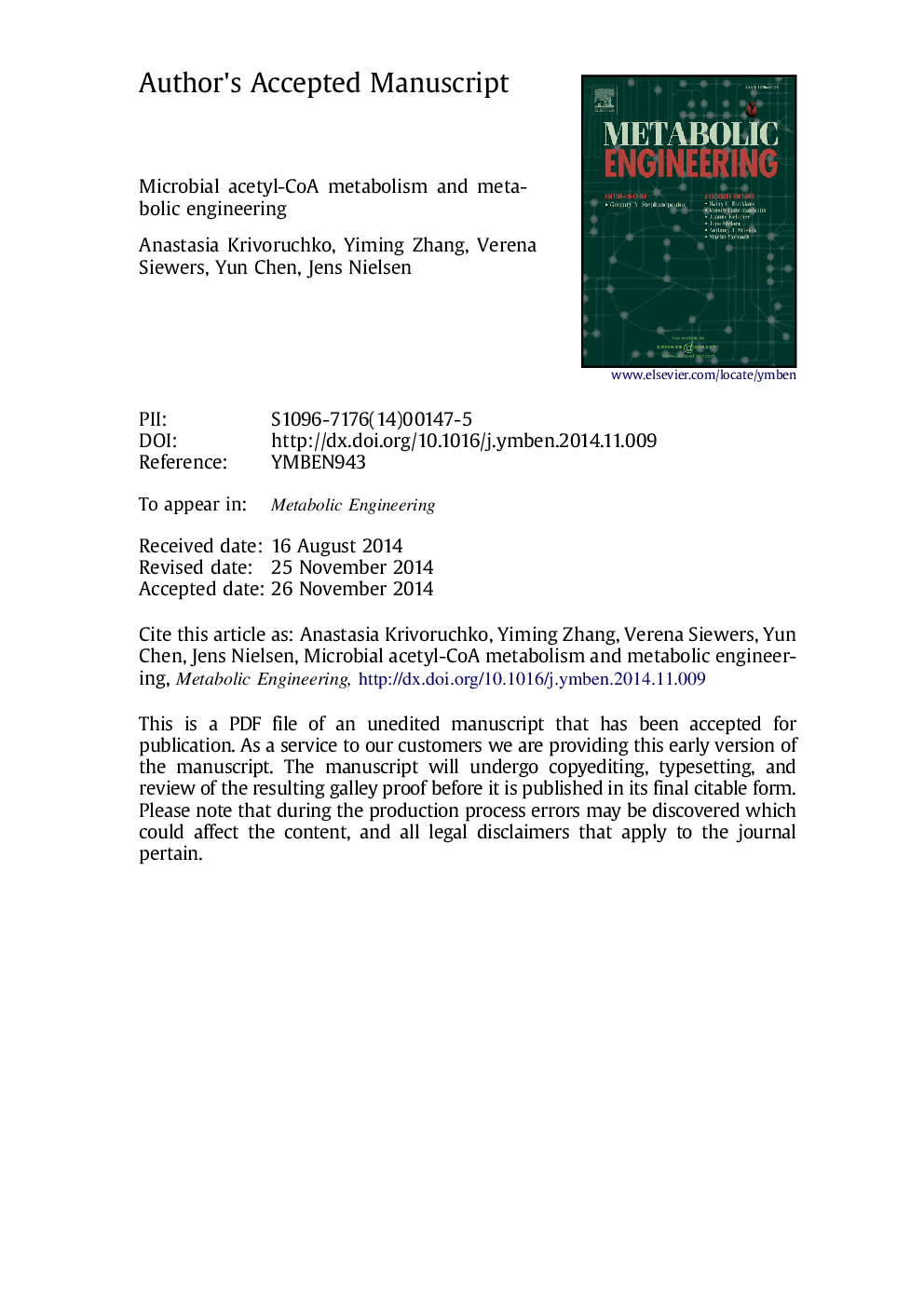| Article ID | Journal | Published Year | Pages | File Type |
|---|---|---|---|---|
| 6494429 | Metabolic Engineering | 2015 | 61 Pages |
Abstract
Recent concerns over the sustainability of petrochemical-based processes for production of desired chemicals have fueled research into alternative modes of production. Metabolic engineering of microbial cell factories such as Saccharomyces cerevisiae and Escherichia coli offers a sustainable and flexible alternative for the production of various molecules. Acetyl-CoA is a key molecule in microbial central carbon metabolism and is involved in a variety of cellular processes. In addition, it functions as a precursor for many molecules of biotechnological relevance. Therefore, much interest exists in engineering the metabolism around the acetyl-CoA pools in cells in order to increase product titers. Here we provide an overview of the acetyl-CoA metabolism in eukaryotic and prokaryotic microbes (with a focus on S. cerevisiae and E. coli), with an emphasis on reactions involved in the production and consumption of acetyl-CoA. In addition, we review various strategies that have been used to increase acetyl-CoA production in these microbes.
Keywords
FPPPFLRTGPTAACKPDHTriosephosphate isomeraseTPIUASHDACADHACSHMGRURSFBAFNRPHAACCCSREPOXiCrePnOPHBATP-citrate lyaseCATFAEEPDCHMG-CoA reductaseALDFatty Acid ethyl estersAcetate kinaseAcetaldehyde dehydrogenaseAcetyl-CoA synthetaseacetyl-CoA carboxylaseAcetyl-CoAAlcohol dehydrogenasePFORBacteriaIndustrial biotechnologyPyruvate decarboxylaseACLMalate synthaseCitrate synthaseretrogradefarnesyl pyrophosphateFructose-bisphosphate aldolasePhosphotransacetylasePhosphoketolaseCentral carbon metabolismYeastHistone acetyltransferasehistone deacetylasepolyhydroxyalkanoatepyruvate dehydrogenasepyruvate formate lyasepyruvate oxidaseCarnitine acetyltransferaseHATHAp
Related Topics
Physical Sciences and Engineering
Chemical Engineering
Bioengineering
Authors
Anastasia Krivoruchko, Yiming Zhang, Verena Siewers, Yun Chen, Jens Nielsen,
